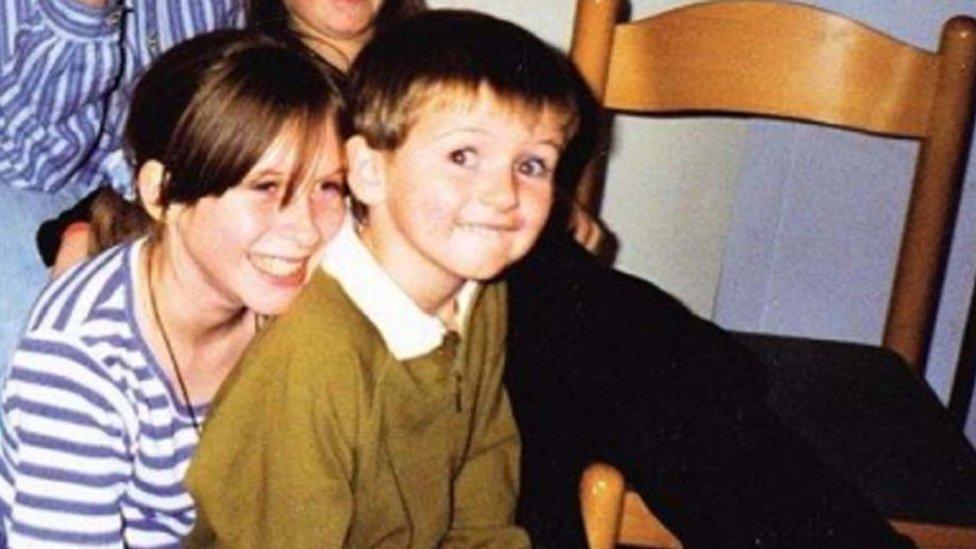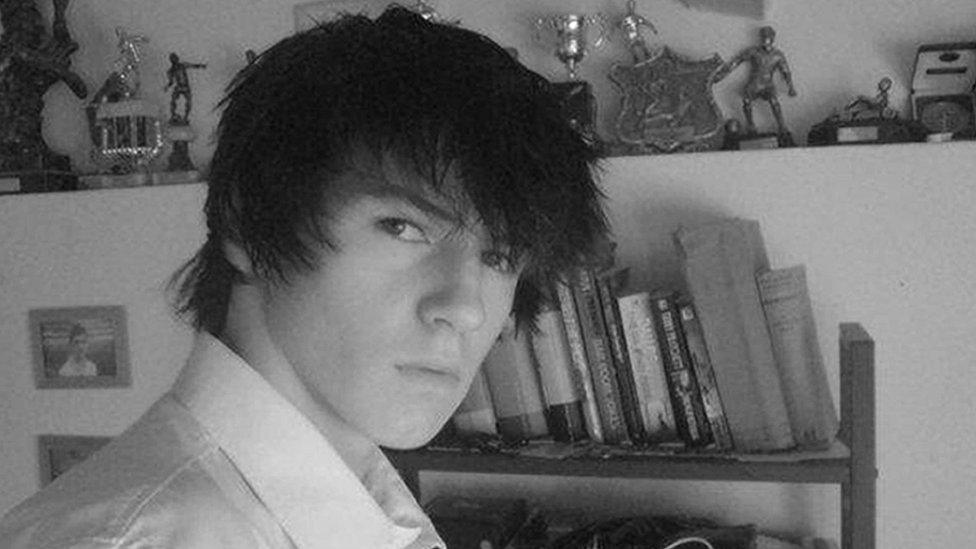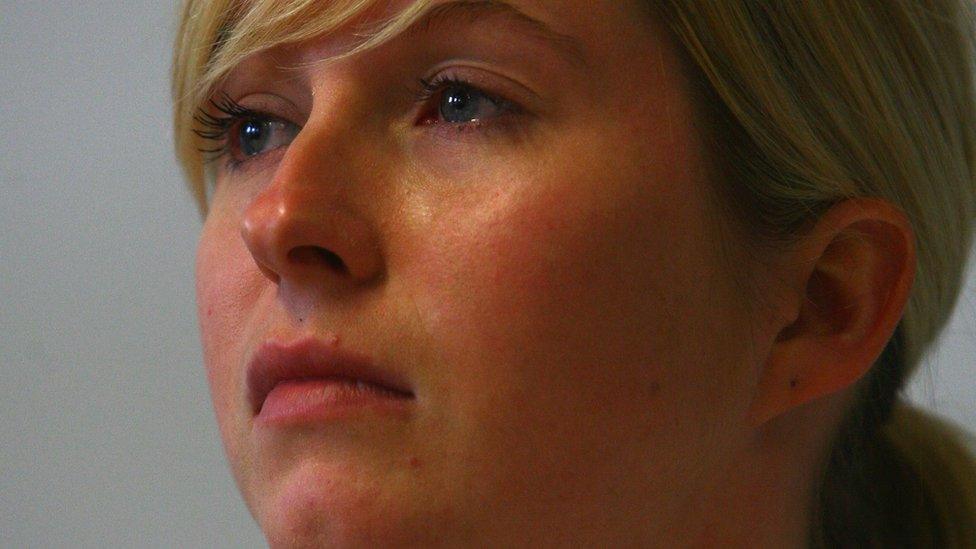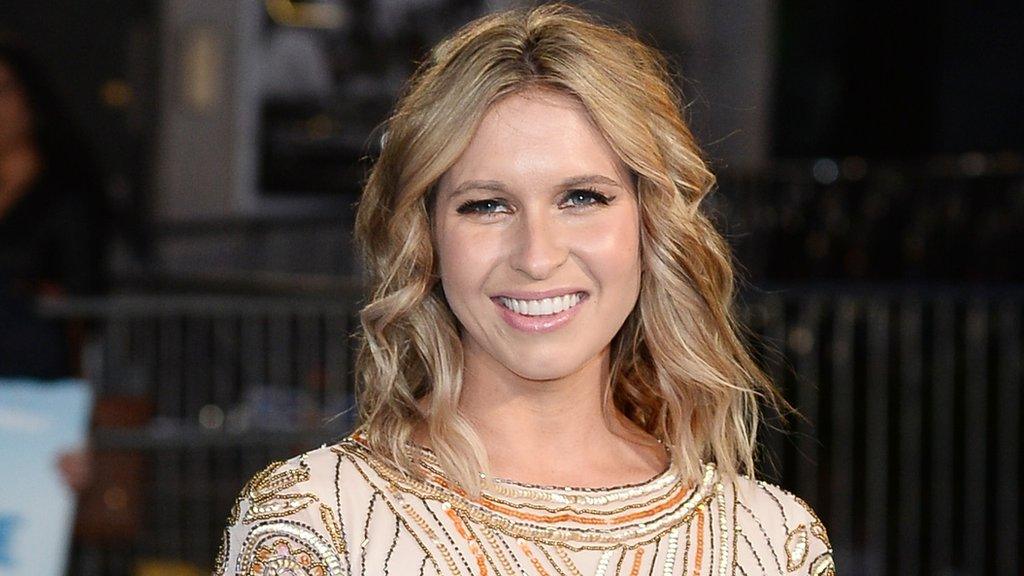Ex-EastEnders star Brooke Kinsella heartbroken at brother's death 15 years on
- Published

"I am thinking of my family, Ben's friends, the wife he might have loved, and the children he might have had", Ms Kinsell said
A touching childhood photograph of former Eastenders actress Brooke Kinsella and her brother Ben, a victim of knife crime, has been released 15 years after he was stabbed to death.
Ben was killed in Islington, north London, on 29 June, 2008, while out celebrating the end of his GCSE exams, external.
The ex-EastEnders star says it is heart-breaking that so many people are still being killed by knife crime.
"We will never give up in the fight against knife crime," she vowed.
Hundreds marched in protest against knife crime after Ben's death.
"Fifteen years on, I am still so heartbroken at the violent and unnecessary loss of such a beautiful boy and the ripple effect it had on so many," Ms Kinsella said.
"I am thinking of my family, Ben's friends, the wife he might have loved, and the children he might have had."

Actress Brooke Kinsella set up a knife crime charity in her brother's name following his death
Ben was stabbed after leaving at bar and being chased in the aftermath of an argument at the premises.
Three men caught up with Ben - who was blameless in the row - and kicked him to the ground before stabbing him repeatedly.
Jade Braithwaite, Michael Alleyne and Juress Kika, all from Islington, were jailed for life with a minimum 19-year term for Ben's murder.
The Kinsella family set up anti-knife crime charity the Ben Kinsella Trust in the wake of his death.
To date, the organisation has worked with 30,000 young people directly and more through online courses to divert them away from knife crime.
Ben Kinsella Trust chief executive Patrick Green said knife crime remained an "epidemic" in the UK.
'Drugs and gangs and county lines'
He said knife crime has "risen by 46% in the last decade and is spreading like an epidemic".
Rather than just a "big city problem", it was now "escalating quicker in towns and areas which 10 years ago were immune to knife crime".
"The increase in knife crime is fuelled by drugs and gangs and county lines."
Mr Green cited social issues such as poverty, deprivation, and lack of opportunities as factors for criminals to target vulnerable young people.

Ben's parents, Deborah and George, said they would "always wonder" what he would be doing
In the past eight years, the number of attacks involving machetes and large knives has risen six-fold, Mr Green said, but plans to ban the weapons could take four or five years to come into force.
"The pace of change is too slow," he said.
"We seem unable to respond quickly and decisively when policies and law changes are desperately needed."
In April, the Home Office launched a consultation on plans to ban so-called zombie knives and machetes that have no obvious practical purpose, and tougher sentences for those caught selling knives to under-18s.

Follow BBC London on Facebook, external, Twitter , externaland Instagram, external. Send your story ideas to hellobbclondon@bbc.co.uk, external
Related topics
- Published29 June 2018

- Published23 March 2018
